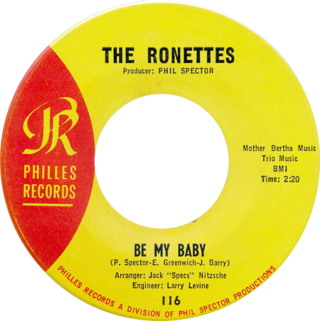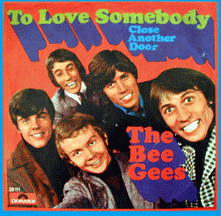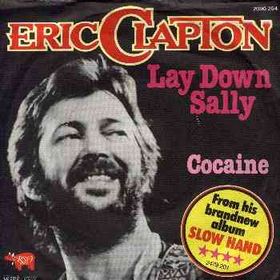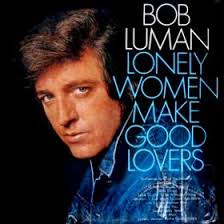Related Research Articles
"Without You" is a song written by Pete Ham and Tom Evans of British rock group Badfinger, and first released on their 1970 album No Dice. The power ballad has been recorded by over 180 artists, and versions released as singles by Harry Nilsson (1971), T. G. Sheppard (1983) and Mariah Carey (1994) became international best-sellers. The Nilsson version was included in 2021's Rolling Stone's 500 Greatest Songs of All Time. Paul McCartney once described the ballad as "the killer song of all time".

"Popcorn" is an instrumental composed by Gershon Kingsley in 1969 for the album Music to Moog By on Audio Fidelity Records label. The Moog synthesizer instrumental became a worldwide hit, first in 1972 when a version by Hot Butter was released. Since then, multiple versions of the piece have been produced and released, including those by Vyacheslav Mescherin, Anarchic System, Popcorn Makers, the Boomtang Boys, M & H Band, Crazy Frog and The Muppets.
"Always on My Mind" is a ballad written by Wayne Carson, Johnny Christopher, and Mark James, first recorded by Brenda Lee, and first released by Gwen McCrae in March 1972. Lee's version was released three months later in June 1972. The song has been a crossover hit, charting in both the country and western and pop categories. Elvis Presley's recording was the first hit version of the song.

"Trampled Under Foot" is a song by English rock group Led Zeppelin. A funk-influenced piece with John Paul Jones on clavinet, it was included on their 1975 album Physical Graffiti. The song was released as a single in several countries and was frequently performed in concert.

"I'm Every Woman" is a song by American singer Chaka Khan, released as her debut solo single from her first album, Chaka (1978). It was Khan's first hit outside her recordings with the funk band Rufus. "I'm Every Woman" was produced by Arif Mardin and written by the successful songwriting team Nickolas Ashford and Valerie Simpson. The single established Chaka's career outside the group Rufus, whom she would leave after their eighth studio album Masterjam was released in late 1979.

"Be My Baby" is a song by American girl group the Ronettes that was released as a single on Philles Records in August 1963. Written by Jeff Barry, Ellie Greenwich, and Phil Spector, the song was the Ronettes' biggest hit, reaching number 2 in the U.S. and number 4 in the UK. It is often ranked as among the best songs of the 1960s, and it is regarded by some as one of the greatest songs of all time.

"Something to Talk About" is a song written by Canadian singer-songwriter Shirley Eikhard and recorded by American singer Bonnie Raitt for her 1991 album Luck of the Draw. It was released to US radio on June 3, 1991. Two single versions were released: a 7-inch single with the B-side "One Part Be My Lover" and a 12-inch single with these two songs and "I Ain’t Gonna Let You Break My Heart Again". In turn, this song was included on the EP version of Raitt’s 2000 single of "The Fundamental Things" taken from her 1998 album Fundamental. It was also included in 2003’s greatest hits compilation The Best of Bonnie Raitt. Live versions appear on 1995's Road Tested and 2006's Bonnie Raitt and Friends.
"To Know Him Is to Love Him" is a song written by Phil Spector, inspired by words on his father's tombstone, "To Know Him Was to Love Him." It was first recorded by the only vocal group of which he was a member, the Teddy Bears. Their recording spent three weeks at No. 1 on the Billboard Hot 100 chart in 1958, while reaching No. 2 on the UK's New Musical Express chart. Peter & Gordon and Bobby Vinton later had hits with the song, with its title and lyrics changed to "To Know You Is to Love You". In 1987, the song was resurrected by Dolly Parton, Linda Ronstadt, and Emmylou Harris, whose Trio recording topped the U.S. country singles chart. The song is in 12/8 time.

"To Love Somebody" is a song written by Barry and Robin Gibb. Produced by Robert Stigwood, it was the second single released by the Bee Gees from their international debut album, Bee Gees 1st, in 1967. The single reached No. 17 in the United States and No. 41 in the United Kingdom. The song's B-side was "Close Another Door". The single was reissued in 1980 on RSO Records with "How Can You Mend a Broken Heart" as its flipside. The song ranked at number 94 on NME magazine's "100 Best Tracks of the Sixties". It was a minor hit in the UK and France. It reached the top 20 in the US. It reached the top 10 in Canada.

"Lay Down Sally" is a song performed by Eric Clapton, and written by Clapton, Marcy Levy, and George Terry. It appeared on his November 1977 album Slowhand, and reached No. 3 on the Billboard Hot 100 chart.

Shirley Rose Eikhard was a Canadian singer-songwriter. Although moderately successful in Canada as a performer in her own right, she had her greatest Canadian and international success as a songwriter for other artists, most notably as the writer of Bonnie Raitt's 1991 hit "Something to Talk About".

"Hello It's Me" is a song written by American musician Todd Rundgren. It was the first song he wrote, and was recorded by his group Nazz as a slow ballad, released as the B-side of the band's first single, "Open My Eyes", in 1968. A mid-tempo version of "Hello It's Me", recorded for Rundgren's 1972 solo album Something/Anything?, was issued as a single in 1973, reaching No. 5 on the Billboard Hot 100 chart.

"Say You Love Me" is a song written by singer/songwriter Christine McVie for Fleetwood Mac's 1975 self-titled album. The song peaked at No. 11 on the Billboard Hot 100 for three weeks, and remains one of the band's most recognizable songs. Its success helped the group's eponymous 1975 album sell over eight million copies worldwide.

"Wildflower" is a song written by Doug Edwards and Dave Richardson in 1972. First performed by the Canadian band Skylark, it has been covered by many artists and more recently has been sampled in a number of hip hop songs.

"Lonely Women Make Good Lovers" is a song written by Freddy Weller and Spooner Oldham, and first recorded by American country music artist Bob Luman. Luman's version was the second single from his 1972 album of the same name. He released the single on August 2, 1972, and it debuted on the Hot Country Singles charts in September, spending nineteen weeks on it and peaking at number 4. Weller released his version of the song on his October 1972 album, The Roadmaster.
"Cotton Jenny" is a song written and recorded by Gordon Lightfoot for his 1971 album Summer Side of Life. The song was later released as a single by Canadian country-pop artist Anne Murray.
"It Takes Time" is a song written by Shirley Eikhard and originally performed by Anne Murray. Eikhard was 15 years old at the time of Murray's recording; it was her first professionally recorded composition.
"Missing You" is a song written by Red Sovine and Dale Noe, which was originally released by Red Sovine in 1955, and was later a hit single for Webb Pierce in 1957, Ray Peterson in 1961, and was posthumously a hit for Jim Reeves in 1972. Sovine's version was the B-side of Red Sovine and Webb Pierce's hit single "Why Baby Why".

The discography of Asleep at the Wheel (AATW), an American country band, consists of 26 studio albums, 16 live albums, 21 compilation albums, seven extended plays (EPs), 40 singles, four video albums and 19 music videos.
Jack Hennig is a Canadian singer-songwriter. Hennig is best known for his Canadian hits "Lady Highway" (1976), "George the Hermit" (1978), "Mindy" (1978), and "Caught in the Middle" (1979). During the peak of his career between 1970 to 1980, Hennig placed nine songs on the Canadian RPM charts.